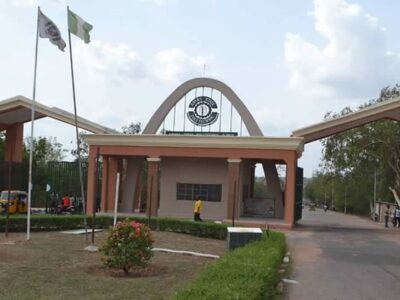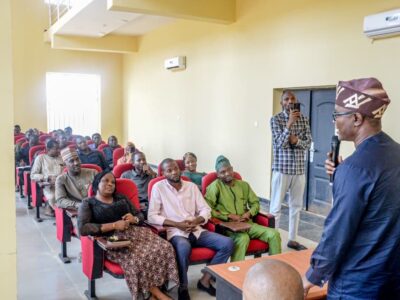The Veterinary Students of the University of Ilorin, on Saturday sensitize Kwara abattoirs on dangers of selling cow meat with Tuberculosis to the public for consumption.
The theme of World TB Day 2024 is entitled: “Yes! We can end TB!’, which conveys a message of hope that getting back-on-track to turn the tide against the TB epidemic.
Speaking on Bovine TB, Miss Hikma Abdulkareem, the President of the Veterinary Students Association of the University explained that it is caused by the bacterium Mycobacterium bovis.
Bovine tuberculosis is a chronic bacterial disease of animals caused by members of the Mycobacterium tuberculosis complex.
She explained that it is a major zoonotic disease, and cattle are the main source of infection for humans.
She added that it is very similar to the bacterium that usually causes human tuberculosis.
According to her, Bovine TB can affect humans with a serious and sometimes fatal disease.
Abdulkareem noted that the students deems it fit to reachout to the butchers and senaitize them more on the dangers of TB in cows and how they can seek the help pf veterinarian.
The president of the association observed that though some of the butchers were receptive to the messages, some however dismissed it that eating “Fuku-elegusi”, does not cause harm.
She however, added that this did not deter them to comtinue creating awareness on the dangers of TB.
Dr Ajadi Abdullateef, of the Department of Veterinary Pathology of the University of Ilorin said this is part of the efforts and training for the students to ensure that they become agent of advocacy on well veing of both animals and humans.
He added that this is necessary because of the prevalence of TB, which he said is preventable.
Abdullateef said there should be Standard Operating Procedures (SOP) that will ensure identification of infected cowsand aubject them to tests.
Also speaking, Dr Shukura Ghali, the Veterinarian incharge of Dr Olusola Saraki Abbattoir in Ilorin said that they carry out post mortem on slaughtered animals so as to ensure healthy animals in the abattoir.
She added that this includes the welfare and health of an animal, while also customer protection and animal welfare.
In the area of ensuring hygiene, Ghali noted that they have been educating butchers on need for optimal hygiene.
In his reaction, Mr Lam Razaq, the Apala (Chief Butcher) of Olusola Saraki Abbatoir, commended the students for the initiative.
He observed that the Veterinary clinic have always supported the butchers wiyh similar awareness campaign.
Razaq explained that they now have better knowledge that an infected cow can also infevt orher cows and will make effort to fet intouch with veterinary experts.
He also enjoined them for more sensitization for members to be more educated in order to promote health of citizenry.










Comments